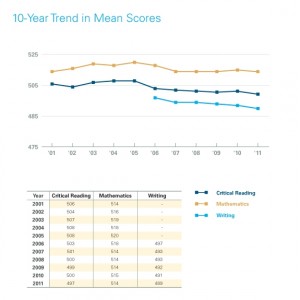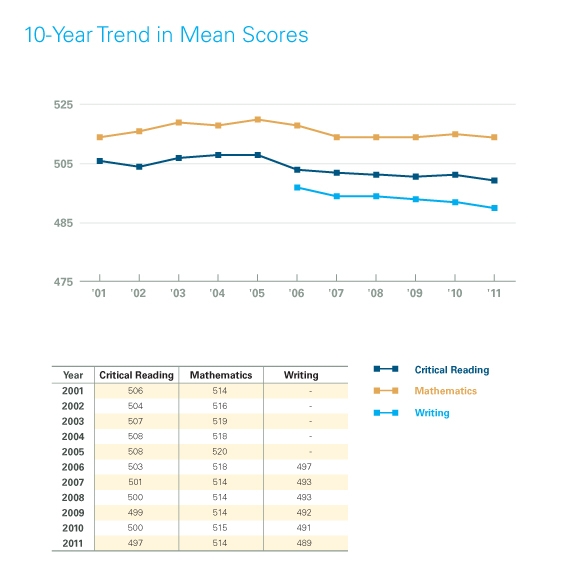
Too much of anything is unhealthy, and any amount of homework can very easily feel like too much.
According to AlterNet, a news and politics website, the amount of homework we students have received in the last decade has increased 40%.
Homework overload has affected students as young as nine years old. The website Parenting interviewed parents: “They don’t have time to just be kids anymore…a lot of kids can’t even make it to dinner.”
Just because we spend more time on homework doesn’t mean our grades will rise or that we will have a better understanding of the information. A Newsplex article did mention that there is a correlation with time spent on math homework and a student’s rising grade, but that homework in any other subject does not have such correlation.
Piles of homework cause unnecessary stress that negatively impacts grades. Junior year, I had six hours of homework nightly–on a lucky day I would only have four hours. There were some nights where I had to choose which homework assignments I was going to complete, for there simply wasn’t enough time to finish all of it.
My stress level was the highest it had ever been, my grades began to drop, I wasn’t sleeping at night, and I lost nearly all my motivation. That year I lost my love for school, and I no longer had that spark, that fire that ignited me to learn. Too much homework doesn’t let kids experience life. That’s what we are all here for isn’t it? To experience life to all it can be, while learning along the way.
So why all this homework? Extra practice outside of school, in theory, should improve our test taking abilities–but this is not the case. Recent statistics reveal that over the last decade (while the volume of homework has increased significantly), SAT scores have flatlined, even dropped from scores in the years prior. There seems to be no positive correlation between the relationship of time spent on homework and SAT scores.
But it’s not only the amount of homework that’s crucial, but also the type of homework we receive. Teachers–especially those who teach grades other than high school–frequently hand out busy work that doesn’t stimulate learning. Teachers merely hand out homework for the sake of handing it out. As stated in Newsplex, “…more [homework] isn’t necessarily better…”.
Teachers either need to assign homework that is constructive, or not assign it at all. What is this busy work teaching? Monotonous homework wastes time; it takes away from other activities–such as sports, work, and creative pursuits–and doesn’t teach anything new or insightful to the students.
“Free time plays a key role in fostering both creativity and emotional development, factors just as basic to long term success as in academic gains,” wrote AlterNet. It is important to have down time. Free time allows our brain and body to relax, which will allow the us to be more effective back at school the next day.
In The Telegraph, the author Jemima Lewis wrote, “…the horror of homework can become so consuming that it destroys their entire school career.” We begin to stress throughout the day as class after class piles on more and more homework.
John Elder, headmaster of Edinburgh College in the United Kingdom, made excellent points in regards to why homework is unnecessary. In The Telegraph, Elder mentioned that homework “is more trouble than it’s worth.” He so strongly believed in his theory, that he took the brave risk of banishing homework at his school.
When Elder banned homework, the grades of his pupils rose 20%.
John Elder is also quoted in Free Library, and said that parents are thankful for this ban of homework. “They don’t have to suffer the kitchen scene, consoling their weeping child without the faintest idea of how to do the [homework] problems themselves…Home is for home life and I believe nearly all work should be completed in school.”
Education experts from around the country believe that for each increasing grade level, ten minutes of homework time should be added. We must take into consideration though, that high school has many different levels of education (such as academic, honors, and advanced placement classes) that middle schools don’t usually offer. Because of this, I find it acceptable for high school students to have a bit more than 120 minutes of homework every night, just not six hours worth.
Gerald LeTendre, head of Penn State’s Education Policy Studies department, was quoted in Penn State News and said, “We think of homework as something very simple, almost like an afterthought. It’s not. It can be a very effective tool, but it is complicated.”
LeTendre thinks that the most effective homework is personalized. The teacher would work with each student individually and assign homework assignments that will best suit to their needs. The teacher would then check up with the student accordingly and monitor their progress.
While this sounds very effective, I don’t necessarily agree. Personalizing each and every student’s homework will cause some to have much more homework than others, which will cause grades to be different. Also, teachers simply don’t have enough time to plan these individual homeworks for each and every one of their pupils. Perhaps this method would be effective in a middle or elementary school, but for a high school this method could get extremely complicated.
All in all, homework should be assigned; it actually does help our learning, but in order for it to be effective there should not be a mound of homework, and it should not contain any amount of busy work.
School work is not the only important thing in our lives. Free time is crucial for appropriate development–it fosters social development and allows the brain and body to work in ways that homework could never challenge.

Leave a Reply